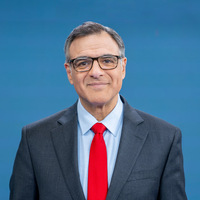Conspiracy theories have actually always belonged of human history. They are defined as descriptions or beliefs that suggest that events or scenarios are the outcome of a secret, often sinister, plot by a group of people or organizations. These theories frequently challenge the official story and offer alternative explanations for occasions that have actually occurred. The history of conspiracy theories goes back centuries, with examples such as the belief that the Illuminati control the world or that the moon landing was faked.
The reasons people believe in conspiracy theories are complex and varied. Some individuals may feel a sense of powerlessness or uncertainty in their lives, and conspiracy theories use a method to make sense of the world and restore a sense of control. Others might mistrust authority figures or organizations and see conspiracy theories as a method to expose corruption or concealed programs. Additionally, some people might merely find comfort in thinking in something that breaks the mainstream story, as it gives them a sense of coming from a select group of individuals who possess special knowledge.
The unusual and unusual theories that few have actually ever heard of
While many conspiracy theories have gained extensive attention and notoriety, there are also lesser-known theories that are similarly weird and unusual. One example is the theory that the world is controlled by shape-shifting lizard individuals. According to this theory, reptilian aliens have actually penetrated positions of power and are secretly ruling the world. This theory might seem far-fetched to many people, however it has gotten a following amongst some conspiracy theorists.
The psychology behind these lesser-known conspiracy theories is remarkable. Many people who believe in these theories might be seeking a description for occasions or phenomena that they discover difficult to understand or accept. Believing in something as outlandish as shape-shifting lizard individuals can provide a sense of enjoyment and intrigue, as well as a feeling of being part of an exclusive group with unique knowledge.
The conspiracy theory that the moon landing was faked
Among the most widely known and enduring conspiracy theories is the belief that the moon landing in 1969 was faked. According to this theory, the United States government staged the whole event in order to win the Area Race versus the Soviet Union. The theory recommends that the video footage and photographs of astronauts on the moon were really shot in a studio.
The origins of this theory can be traced back to a small group of people who began questioning the authenticity of the moon landing soon after it happened. They pointed to various inconsistencies in the video footage and photographs as evidence that it was all a hoax. Throughout the years, this theory has acquired traction and has actually been sustained by the increase of the internet, which has enabled the spread of misinformation and the sharing of alternative narratives.
There is a wealth of evidence that supports the truth that the moon landing was not faked. The most engaging proof originates from independent sources, such as other nations' area companies, who have verified that they tracked and observed the Apollo missions. Additionally, there is physical proof on the moon itself, such as footprints and equipment left by astronauts. Regardless of this overwhelming evidence, there are still people who think in this conspiracy theory.
The reasons that people continue to believe in the moon landing scam theory are varied. Some people might wonder about government institutions and see this theory as a method to expose corruption or concealed programs. Others may merely find comfort in thinking in something that goes against the mainstream narrative. Additionally, some people may be drawn to conspiracy theories due to the fact that they provide a sense of excitement and intrigue, in addition to a sensation of being part of an unique group with unique knowledge.
The theory that the Earth is flat
Another conspiracy theory that has actually gained traction recently is the belief that the Earth is flat. According to this theory, all proof recommending that the Earth is round belongs to a huge cover-up by federal governments and clinical institutions. Flat Earth believers argue that pictures of the Earth from space are doctored, and that the curvature of the Earth is a visual fallacy.
The history of the flat Earth theory can be traced back to ancient civilizations, who believed that the Earth was a flat disc. This belief was largely exposed by clinical discoveries and observations made over the centuries. The theory got restored attention over the last few years, thanks in part to the rise of social networks and online neighborhoods that promote alternative stories.
There is overwhelming evidence that supports the reality that the Earth is round. Scientific observations, such as photographs taken from area and measurements of the Earth's curvature, provide clear proof that the Earth is not flat. In addition, there are useful ramifications of a round Earth, such as the ability to browse utilizing longitude and latitude collaborates.
Despite this evidence, there are still people who think in the flat Earth theory. Some may be drawn to this theory due to the fact that it challenges recognized scientific understanding and provides an alternative story. Others may distrust authority figures or organizations and see this theory as a way to expose corruption or hidden programs. Additionally, some individuals may simply find comfort in believing in something that goes against the mainstream story.
The conspiracy theory that lizard people rule the world
One of the most bizarre conspiracy theories is the belief that lizard individuals, or reptilian aliens, are covertly ruling the world. According to this theory, these shape-shifting creatures have actually infiltrated positions of power and are manipulating world events for their own gain. This theory has acquired a following amongst some conspiracy theorists, who think that lizard individuals are accountable for everything from wars to recessions.
The origins of this theory can be traced back to writer David Icke, who popularized the concept in his books and lectures. Icke claims that these reptilian aliens are able to shape-shift into human type and have been controlling mankind for centuries. He argues that many world leaders and celebs are in fact lizard people in camouflage.
There is no reliable proof to support the presence of lizard individuals or their control over the world. The theory is based on speculation and anecdotal accounts, rather than scientific proof. Additionally, the idea that shape-shifting reptilian aliens might penetrate positions of power without anyone noticing is highly implausible.
The psychology behind this theory is interesting. Thinking in something as extravagant as lizard individuals ruling the world can provide a sense of excitement and intrigue, in addition to a sensation of being part of an unique group with unique understanding. Some individuals may likewise be drawn to this theory due to the fact that it offers an explanation for occasions or phenomena that they discover challenging to comprehend or accept.
The theory that the Illuminati control the music industry
Another popular conspiracy theory is the belief that the Illuminati, a secret society, control the music industry. According to this theory, the Illuminati usage popular artists and their music to spread their messages and control the masses. This theory has actually acquired traction recently, thanks in part to the rise of social media and online communities that promote alternative stories.
The history of the Illuminati theory can be traced back to the late 18th century, when a secret society called the Bavarian Illuminati was established. This society intended to promote Enlightenment perfects and oppose religious and political oppression. It was dissolved by the Bavarian federal government after just a few years.
There is no reliable evidence to support the belief that the Illuminati manage the music industry. The theory is based upon speculation and guesswork, rather than concrete evidence. Furthermore, lots of artists have spoken up against this theory and have actually denied any involvement with the Illuminati.
Regardless of this lack of proof, there are still people who believe in this conspiracy theory. Some might be drawn to this theory since it provides a description for occasions or phenomena that they find hard to understand or accept. Others might mistrust authority figures or organizations and see this theory as a method to expose corruption or hidden programs. Additionally, some people may just find convenience in thinking in something that breaks the mainstream story.
The conspiracy theory that the federal government is hiding the cure for cancer
Among the most hazardous conspiracy theories is the belief that the federal government is concealing the treatment for cancer. According to this theory, pharmaceutical companies and government companies are reducing a cure for cancer in order to profit from pricey treatments and medications. This theory has actually gained traction amongst some individuals who suspect the medical facility and see this theory as a way to expose corruption.
The origins of this theory can be traced back to a basic skepticism of pharmaceutical business and federal government firms. Some individuals believe that these entities focus on earnings over the well-being of clients, and therefore would have no reward to establish or release a remedy for cancer.
There is no reliable proof to support the belief that the government is hiding the treatment for cancer. The theory is based upon speculation and conspiracy thinking, instead of clinical evidence. Additionally, there are several kinds of cancer, each with its own distinct attributes and challenges, making it not likely that there might be a single "cure" for all types of the disease.
This conspiracy theory has had a detrimental effect on cancer research study and treatment. It weakens public rely on medical professionals and institutions, making it more difficult to promote evidence-based treatments and interventions. Furthermore, it can lead people to look for alternative therapies or treatments that have not been proven to be reliable or safe.
The theory that the Denver International Airport is a secret base for the New World Order
Among the more strange conspiracy theories is the belief that the Denver International Airport is a secret base for the New World Order. According to this theory, the airport's construction became part of a larger strategy by a shadowy group called the New World Order to establish an international government. This theory has gotten traction among some conspiracy theorists, who point to different signs and art work in the airport as evidence of its real purpose.
The history of this theory can be traced back to the building and construction of the Denver International Airport in the 1990s. The airport's style and building and construction procedure were afflicted by delays and expense overruns, which led some individuals to speculate that there was something more going on behind the scenes. This speculation eventually progressed into the belief that the airport was a secret base for the New World Order.
There is no credible evidence to support the belief that the Denver International Airport is a secret base for the New World Order. The theory is based on speculation and opinion, instead of concrete evidence. Furthermore, much of the signs and artwork in the airport that are mentioned as proof have been described by the artists themselves or by airport authorities.
This conspiracy theory has actually had a negative impact on the airport and its workers. The spread of this theory has led to increased scrutiny and suspicion of the airport, which can produce a hostile work environment for employees. Additionally, it can deter tourists and tourists from going to or utilizing the airport, which can have financial ramifications for the surrounding location.
The conspiracy theory that the world will end in 2012
One of the most widely known conspiracy theories is the belief that the world would end in 2012. According to this theory, different ancient predictions and forecasts indicated December 21, 2012 as the date of a catastrophic event that would bring about the end of the world. This theory got extensive attention in the years leading up to 2012, with lots of people fearing an armageddon.
The origins of this theory can be traced back to interpretations of ancient Mayan calendars and prophecies. Some individuals thought that these ancient texts predicted a worldwide catastrophe on December 21, 2012. This belief was fueled by the media and pop culture, which sensationalized and exaggerated the predictions.
There is no trustworthy proof to support the belief that the world would end in 2012. The theory is based on misinterpretations of ancient texts and prophecies, along with a misconception of clinical principles. In addition, many professionals in different fields, such as archaeology and astronomy, have exposed this theory and supplied proof to the contrary.
In spite of this overwhelming proof, numerous individuals still believed in the 2012 armageddon theory. Some may have been drawn to this theory because it used an explanation for occasions or phenomena that they found difficult to understand or accept. Others may have been influenced by media and pop culture, which sensationalized and overemphasized the forecasts.
The theory that the Titanic never sank
One of the more controversial conspiracy theories is the belief that the Titanic never sank. According to this theory, the sinking of the Titanic in 1912 was a sophisticated scam orchestrated by different people and companies for monetary gain. This theory has actually gained traction among some conspiracy theorists, who point to different inconsistencies and anomalies in the main story.
The history of this theory can be traced back to soon after the sinking of the Titanic. Some people started questioning the main account of the disaster, pointing to various inconsistencies in survivor accounts and physical evidence. Throughout the years, this theory has gotten a following and has actually been sustained by the rise of the web, which has allowed for the spread of false information and alternative stories.
There is https://mooresuccesspublishing.blogspot.com/2023/12/qanon-conspiracy-theories-volume-1.html that supports the reality that the Titanic did undoubtedly sink. The wreckage of the ship was discovered in 1985, validating its area and supplying physical proof of its demise. Furthermore, there are many survivor accounts and eyewitness testaments that prove the sinking.
Despite this proof, there are still people who believe in the Titanic never sank theory. Some might be drawn to this theory since it challenges the main narrative and provides an alternative explanation for the catastrophe. Others might suspect authority figures or organizations and see this theory as a method to expose corruption or hidden agendas. Furthermore, some individuals may simply discover comfort in thinking in something that goes against the mainstream narrative.
The appeal of conspiracy theories and their effect on society
Conspiracy theories have constantly been a part of human history, using alternative explanations for occasions and phenomena that challenge the official story. The reasons that individuals believe in conspiracy theories are complex and varied, varying from a desire for power and control to a mistrust of authority figures or organizations. In addition, some people might merely find comfort in thinking in something that goes against the mainstream narrative.
While some conspiracy theories might appear safe or even entertaining, others can have hazardous effects. They can undermine public rely on organizations and experts, making it harder to promote evidence-based understanding and interventions. Furthermore, they can lead individuals to look for alternative treatments or treatments that have actually not been proven to be effective or safe.
In order to combat the spread of conspiracy theories, it is important to promote important thinking and apprehension. Encouraging individuals to question details and assess proof seriously can help them compare trustworthy sources and false information. In addition, promoting clinical literacy and media literacy can assist individuals browse the vast amount of info available to them and make informed choices.
In conclusion, conspiracy theories have always been a part of human history, offering alternative explanations for occasions and phenomena that challenge the main narrative. While some conspiracy theories may appear harmless or even entertaining, others can have serious effects. They can fuel suspect in organizations, sow division among people, and even prompt violence. It is necessary to critically evaluate conspiracy theories and depend on evidence-based information to form our beliefs. While questioning authority and looking for the reality is important, it is equally important to compare well-supported claims and unwarranted speculation. By promoting vital thinking and media literacy, we can browse the intricate world of conspiracy theories and ensure that our beliefs are grounded in reality.

www.newstarget.com















